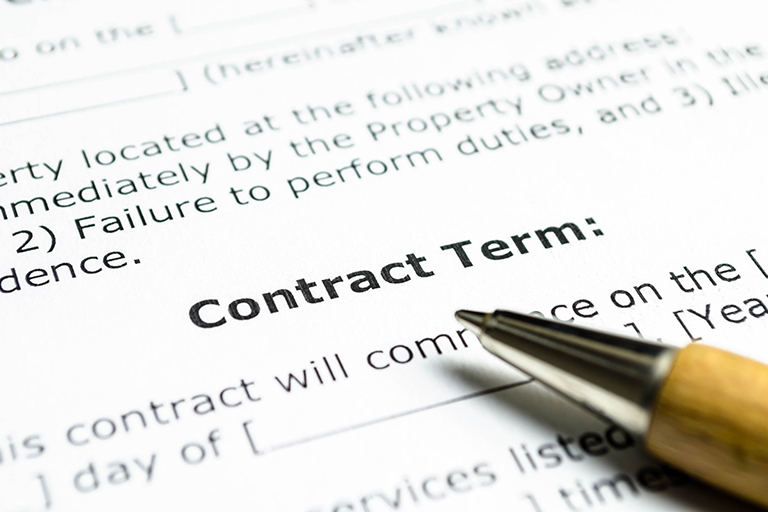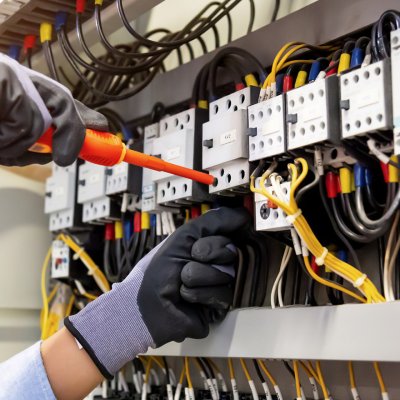How to Become a Bonded Contractor
For independent contractors and small construction companies, getting bonded is one of the best ways to boost professional standing and instill confidence in clients.
But what is a bonded contractor?
In this article, we’ll explore the fundamentals of what it means to be a bonded contractor, the advantages it brings to your business, and the step-by-step process to attain this esteemed status.
What Is a Bonded Contractor?
A bonded contractor is an independent contractor or company that has obtained a surety bond—a financial guarantee that ensures they fulfill their contractual obligations. This bond acts as a protective shield for project owners, assuring them that the contractor will complete the project as agreed upon.
Bonds are purchased from a bonding company or surety provider who serves as the guarantor (i.e. the party who shoulders any losses incurred in case something goes awry). Of course, the contractor is ultimately liable and will reimburse the insurer over time, as per their agreement.
Unlike non-bonded counterparts, bonded contractors undergo a rigorous evaluation process, assessing their financial stability, experience, and overall reliability. The surety bond is a commitment, not just a piece of paper; it signifies the contractor’s dedication to completing projects with integrity and excellence.

The Benefits of Being Bonded and Insured
One of the common myths about surety bonds is that they only benefit the project owner. However, the reality is that surety bonds offer many benefits for contractors, chief among them being boosted credibility.
Purchasing surety bonds builds trustworthiness in your relationship with clients and customers. It signifies your financial stability and commitment to the project, which is why most contract issuers favour a bonded contractor. They are also often viewed as lower-risk options by project owners, making their bids more attractive.
Lastly, getting bonded provides peace of mind for all parties involved. Knowing that there is financial security in place can reduce stress and uncertainty in your business relationships, making everything much easier to navigate.
Do also note that surety bonds can be a legal requirement before working on some projects, typically those that are government-related.
The Steps to Becoming a Bonded Contractor
Now that we’ve explained the meaning of a bonded contractor and its benefits, it’s time to focus on the process of becoming insured and bonded with a reputable surety bonding company.
Pick Your Bond
The first step is to determine the specific bond required by the client. In the context of construction projects, contractors need to be aware of these two types of surety bonds:
Contract Bond: These are the types of bonds that guarantee the work will be completed and that all related subcontractors, suppliers, and vendors will be paid for their services. Performance and payment bonds are two subtypes in this category.
Commercial Bond: These types of surety bonds ensure that a business complies with all relevant rules and regulations when completing their work. Subtypes in this category include contractor license bonds, permit bonds and fidelity bonds.
For instance, a bid bond may be required during the bidding phase. A performance bond may then be needed by your client after they award you the contract to guarantee the job will be completed. A fidelity bond may also be required to ensure subcontractors and suppliers will be paid for their services after the project has been completed.
Start the Application Process
You will have to complete an application and submit it to your chosen surety company. This application typically includes important details related to the bond type, amount, and the location where your business is located.
Providing the correct details in this application form is crucial. This includes any additional documents as advised by the surety company, otherwise, you might be denied a bond. During this stage of the process, attention to detail, transparency, and strategic presentation of your business capabilities are key.

Expect a Background Check
Post-application, your surety provider will run an extensive background and credit check on you and any other contractors who will work alongside you.
You are at risk of being denied a bond if you have a criminal record or are deemed financially unstable. As such, you may want to consider taking measures to reduce your debt where possible or increase your liquid assets. Ensure your financial records are in impeccable order, showcasing stability and responsibility, to pass this critical step in the bonding process.
Deliver as Promised
Once you pass the background check and are issued the bond, you must then shift your focus to fulfilling your responsibilities as an insured contractor! Remember: a bond only benefits you if you follow through on your end of the bargain.
This includes meeting contractual obligations, delivering projects on time, and maintaining high-quality standards. Consistently exceeding expectations not only builds trust with clients but also reinforces your reputation with the bonding company!
Partner With Surety Bond Experts at Contractors Insurance
Successfully becoming a bonded contractor isn’t as easy as 1, 2, 3—but the long-term rewards are well worth it.
At Contractors Insurance, we take pride in helping construction professionals get the contract bonds and specialized insurance coverage they need. Our award-winning surety bond brokers strive to offer the utmost transparency to our clients, from expert recommendations to personalized solutions to keep operations running smoothly.
Become a bonded contractor—call us today.
BACK TO ALL ARTICLES





Leave a Reply
Required fields are marked *